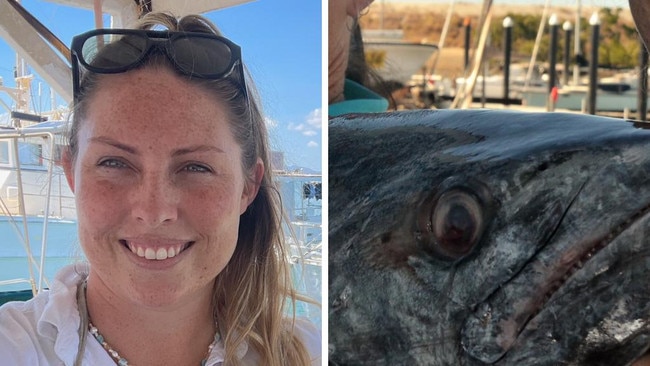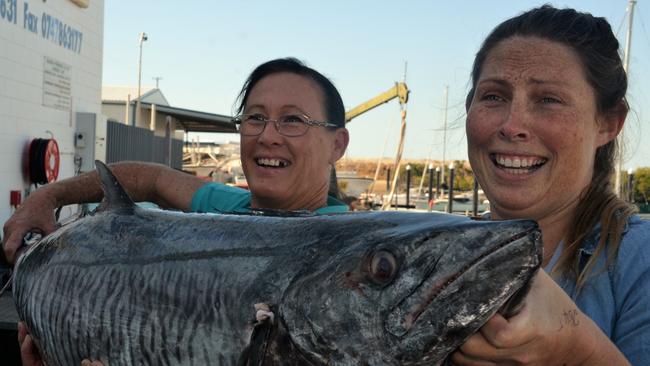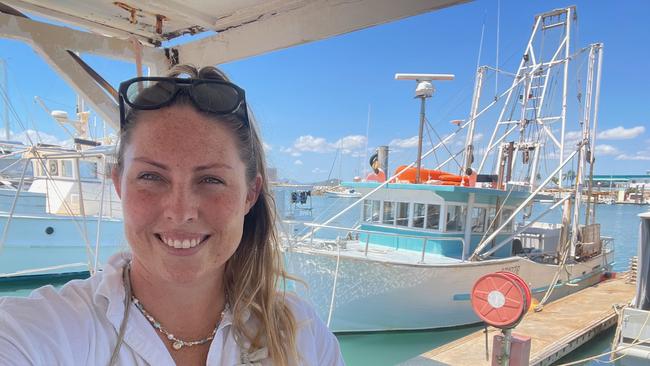Spanish mackerel quotas debated by Queensland fishing industry
Local fishermen and fishing groups say new quotas imposed on a popular Queensland fish are based on flawed data which overlooked fish already protected. See what the official response has been.

Mackay
Don't miss out on the headlines from Mackay. Followed categories will be added to My News.
Local fishermen and fishing associations say new quotas imposed on a popular North Queensland fish are not justifiable as the biomass would have been “underestimated”.
The Spanish mackerel is a subject of high debate, with government institutions saying the species needs protection while industry leaders say the “reef is thriving”.
Department of Agriculture and Fisheries has reduced by more than three times the amount of Spanish mackerel east coast fishermen can catch this year from May 30 2023.
A Department of Agriculture and Fisheries spokesman said “actions needed to be taken to rebuild numbers and maintain fish to market for consumers to enjoy”, which led the department to bring commercial catch from 578 tons to 165 tons for the year.
In a 2021 assessment of the east coast Spanish mackerel fishery, stocks were found to be “historically low”.
“In 2020, the stock level was estimated to be 17% unfished spawning biomass”, the report stated, referring to the biomass that would exist if it had not been fished.

Owner of famous Bowen fishing shop Birds Fish Bar Chloe Bauer said the quota was “devastating” as fishermen had to stop doing “what they loved” and find work elsewhere.
“We were never catching to the limit anyway,” she said referring to the 270 tons per year commercial fishermen were catching prior to the imposed quota, which was a long way from the 578 tons.
“If you talk to fisherman down the coast and scientists that don’t work for QLD Fisheries, they’ll tell you that the reef is at the best it’s ever been.” The reef is thriving,”

Queensland Seafood Industry Association executive officer David Bobbermen said two independent reviewers were contesting the information the Department relied upon in making their decision.
In analysing the 2021 assessment of the species, they found two main arguments they say indicated the biomass had been “underestimated”.
The first argument was that the report “overlooked” the fish population in protected zones where people can’t fish, which represents “a third of the marine park”.
The second argument was that the report had “misinterpreted” the biology of the Spanish mackerel, which is central to assessing biomass.
“You can’t talk about the entire stock to make a decision on biomass, because numbers are fluctuating too much, so it’s a mathematical formula done based on assessing features of one fish,” Mr Bobberman explained.
“You can’t go count the numbers in the ocean, can you?”
A Department of Agriculture and Fisheries spokesman said green zones applied to fishing rules in the Great Barrier Reef Marine Park.
“However, Spanish mackerel are a highly migratory fish and they move in and out of park boundaries where they are then harvested,” he said.
The department has considered that the information raised by the independent review was not “significant enough” to changing rules straight away, but would be considered during the next stock assessment of the fish.
“Fisheries Queensland … will bring forward this next stock assessment to early 2025 and will work with industry to incorporate the technical feedback from both reviews into the stock assessment,” he said
“The next full stock assessment will also be able to incorporate interim outputs from a Fisheries Research and Development Corporation research project currently underway and will have the benefit of four more years of catch records and biological data.’’
Ms Bauer said the quota meant fishermen now decided to go to other fisheries to find Spanish mackerel, especially in Torres Strait waters where quotas are different.
“It’s putting more pressure on other fisheries rather than using our own resources,” she said.




